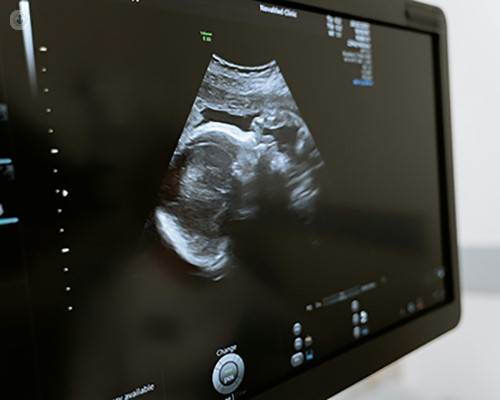Prenatal care: The vital role of fetal scans
Escrito por:Pregnancy is a journey filled with anticipation, excitement, and occasional anxiety for expectant parents. Amidst this whirlwind of emotions, fetal scans emerge as a crucial tool in ensuring the health and well-being of both the baby and the mother. In his latest online article, Dr Panicos Shangaris offers insights into fetal scans' significance and their integral role in prenatal care.

The role of fetal scans in prenatal care:
Fetal scans, primarily conducted through ultrasound, provide healthcare providers with real-time images of the developing fetus within the womb. Utilising high-frequency sound waves, ultrasounds enable professionals to monitor fetal growth, detect abnormalities, and assess the baby's overall health throughout pregnancy. This non-invasive procedure poses minimal risk to both the mother and the unborn child.
Early detection and intervention:
Fetal scans are instrumental in detecting potential issues early on, facilitating timely interventions and management. From confirming pregnancy viability early to monitoring fetal position and growth in later trimesters, these scans offer valuable insights that guide medical decision-making and enhance maternal-fetal health.
Key scans in pregnancy:
- First Trimester Scan (11-13+6 weeks): This scan is crucial for initial health checks of the fetus, including assessments of developmental milestones and nuchal translucency measurements that help evaluate the risk of chromosomal abnormalities like Down syndrome and the risk for developing high blood pressure in pregnancy.
- Anomaly Scan (at around 20 weeks): Conducted around the mid-pregnancy mark, this detailed scan checks for structural abnormalities in the fetus. It assesses several body parts and organs, ensuring they are developing correctly and confirming the placenta's position.
- Additional Growth Scans: In some pregnancies, especially those considered high-risk, additional growth scans may be recommended to monitor the fetus's development closely. These scans can assess the growth rate and are vital in cases where there are concerns about the baby's growth due to maternal health issues or previous pregnancy outcomes.
Advanced imaging modalities:
Advancements in technology have enriched fetal imaging techniques beyond traditional ultrasounds:
- 3D/4D Ultrasounds: These scans offer a lifelike view of the fetus, allowing parents and healthcare providers to see detailed facial features and movements. This can enhance bonding with the baby before birth and assist doctors in better assessing the fetus's health when standard ultrasound images are inconclusive.
- MRI: While not as commonly used as ultrasound, magnetic resonance imaging provides detailed anatomical visualisation, which is particularly useful in assessing complex congenital conditions and fetal brain development.
Considerations and Limitations:
Despite the comprehensive insights provided by fetal scans, it is essential to maintain a balanced perspective regarding their use. While they offer invaluable information, limitations exist, including the possibility of false positives or negatives. Additionally, concerns about overexposure to ultrasound waves are often discussed, though current research suggests minimal risks.
Dr Panicos Shangaris is an esteemed consultant in obstetrics and maternal and fetal medicine. You can schedule an appointment with Dr Shangaris on his Top Doctors profile.


